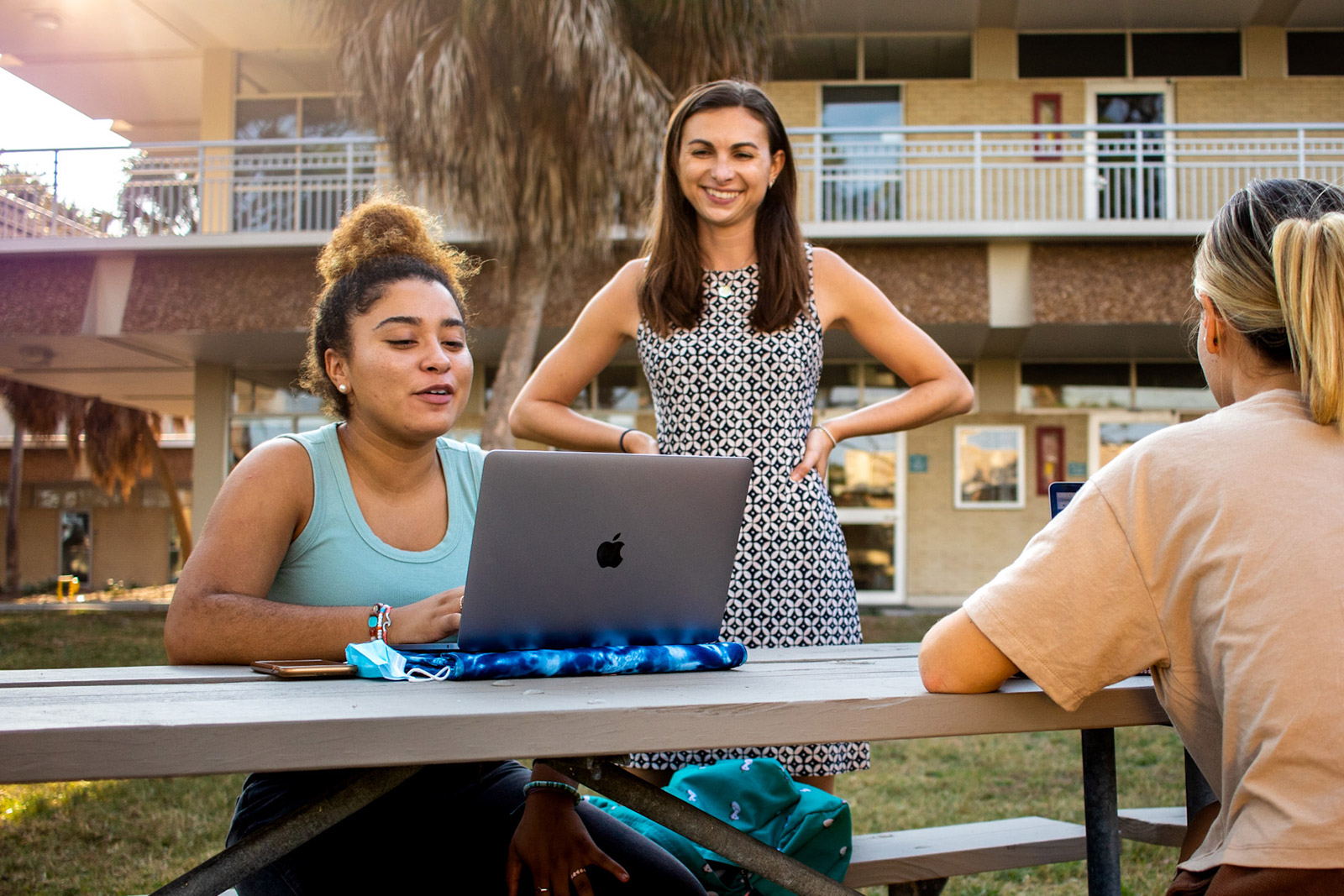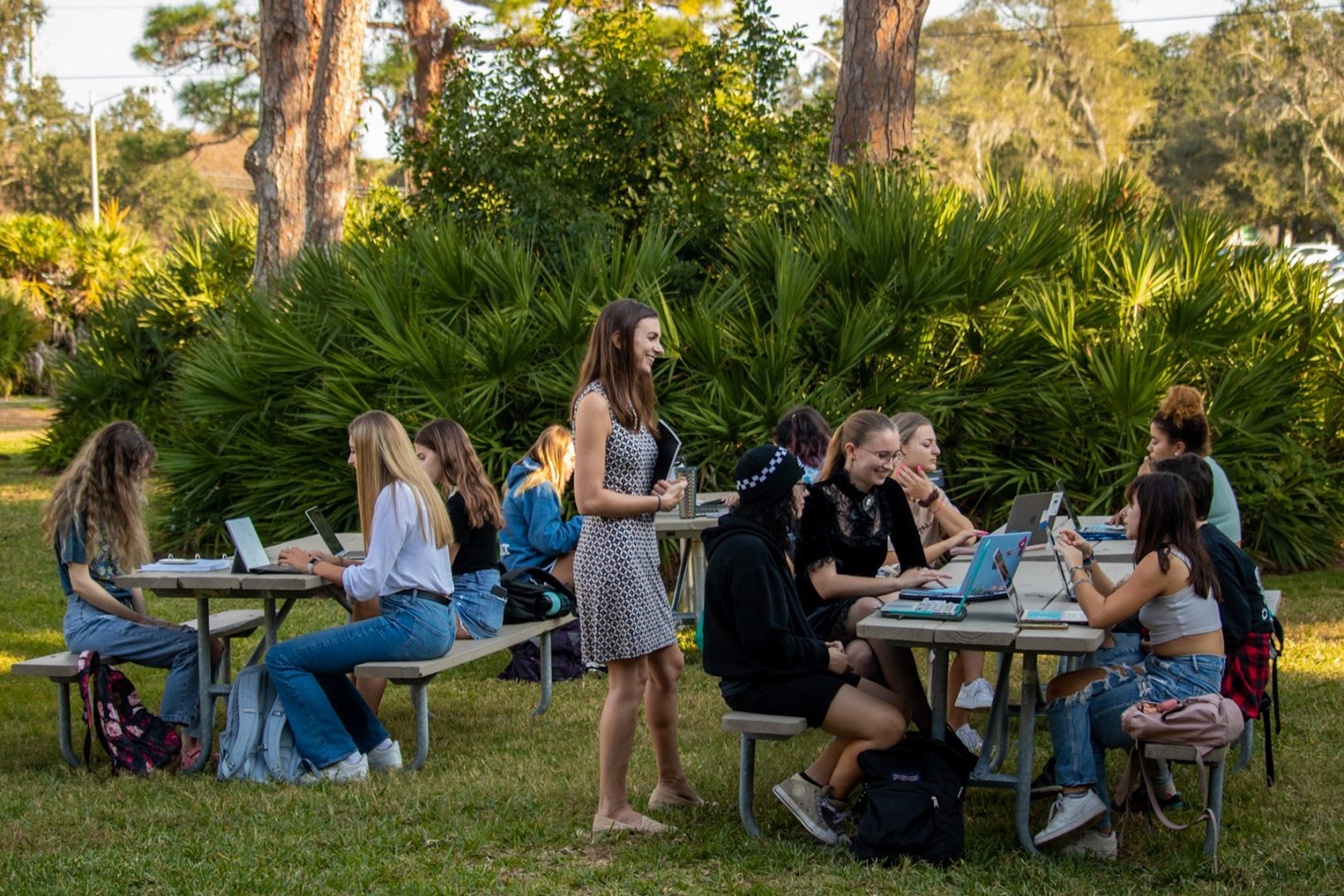Are political views a deal-breaker when it comes to dating? Can being a serious fan of Fox News or CNN spell the end of a beautiful relationship before it’s even begun?
That was the premise of “Political Opposites Do Not Attract,” a 2018 research paper co-authored by new Eckerd College faculty member Stephanie Mallinas, Ph.D., assistant professor of psychology. This isn’t like an Army-Navy football game, where no matter how intense the rivalry, both sides come together after the game.
“Using potential mates as targets,” the study’s conclusion points out, “we found that participants liked targets less, were less romantically interested in targets, and rated targets as less attractive after discovering political dissimilarity with them. Further, they became more uncomfortable with targets after discovering ideological dissimilarity.”
Mallinas says the data for the study was collected before the 2016 presidential election. “If it were done today,” she adds, “I’m sure there would be an even more intense difference.”
That’s exactly the kind of research Mallinas would like to continue at Eckerd, a place she describes as a perfect fit for her. After growing up in Glen Rock, New Jersey, a small town about 45 minutes north of Manhattan, she earned her Ph.D. at Florida State University and served as a graduate teaching assistant. Then she set her sights on Eckerd College.
“Eckerd is more similar to where I got my undergraduate degree, The College of New Jersey, which is a small public liberal arts college,” she says. “I wanted to teach and do research and focus on undergraduates. With smaller classes, I can get to know my students a little better.
“And many smaller liberal arts colleges are in small towns, and that’s fine. But I was really looking for a liberal arts college in an urban area. Where I can still live and work in a city setting.”
The courses she’s teaching this year include Social Psychology, Research Methods and Statistics. Her research examines how ideological and moral beliefs influence prejudice, stereotyping and other forms of social judgment.
“Everything is going really well so far,” she says. “I’m settling into St. Pete, and Eckerd is such a welcoming college. The students are very engaged. It’s been nice to have conversations with them and hear their thoughts.”
Speaking of being engaged, Mallinas is. She and her fiancé are planning an April wedding on Treasure Island. And yes, they validate the research.
“My fiancé and I have pretty similar political views,” she says. “It’s not impossible for people with differing views to be in a relationship, but values are an important part of people’s identity, and we like it when people validate our views, so having a partner with similar political beliefs can affirm our own beliefs and identities.
“Conflict is also inevitable in any relationship, so having similar political beliefs might make it so that there’s one less potential source of conflict among partners.”














